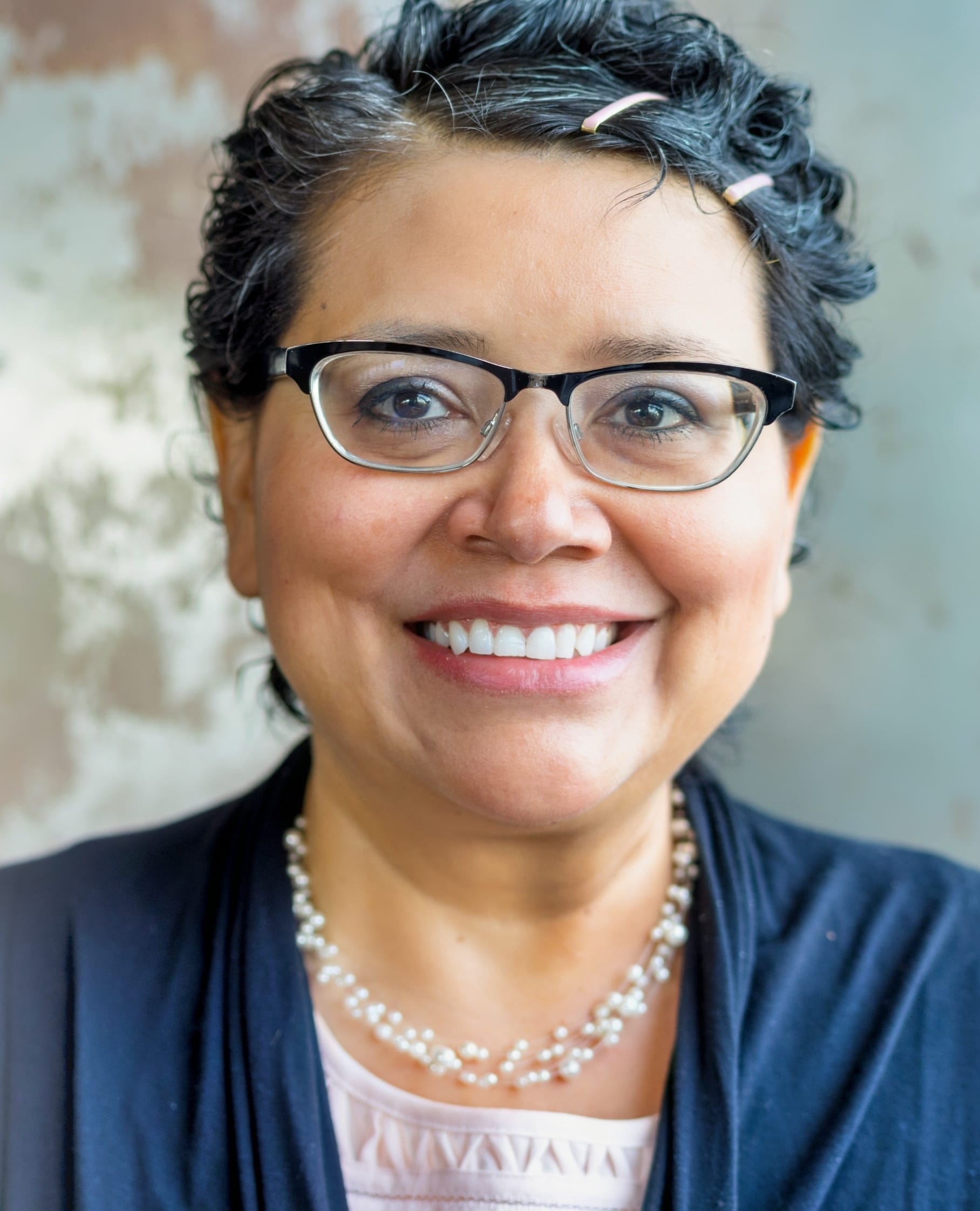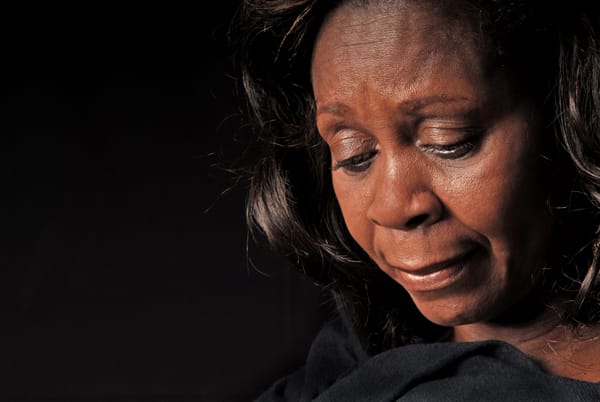Forgiveness: The Ultimate Healing ...

The message of 2nd Chance Love is simple ... "FORGIVE".
When forgiveness becomes a way of life, it transforms every relationship, every memory, and even the way we speak.
It’s not always instant and never simple, but in letting go, we rediscover tenderness and the capacity to love again.
Each act of forgiveness is a gentle step toward inner peace, healing past wounds, and creating a heart-space wide enough for hope.
As we release the debt others owe us, we find freedom and healing, a reminder that God's mercy always flows toward new beginnings.
“Be kind and compassionate to one another, forgiving each other, just as in Christ God forgave you.” — Ephesians 4:32
You may find yourself feeling stuck or uncertain about how to move forward after experiencing a major life change. Maybe you are facing life after a difficult divorce, recovering from a painful relationship, or coping with the loss of a loved one.
In moments like these, it helps to have a framework for understanding the emotional challenges you are going through and the steps you can take toward renewal. This is where the mature healing process comes in.
Rather than rushing through painful feelings or trying to ignore them, your mature healing process allows you to acknowledge what has happened and find healthier ways to restore your sense of self.
It is not about erasing your past or denying your emotions.
Instead, it focuses on giving yourself permission to grow as you navigate grief, hurt, and—even one day—an emerging sense of peace. In this ultimate guide, you will discover practical strategies for easing your pain, building healthier emotional habits, and restoring your well-being in a compassionate, realistic way.
Recognize the power of healing

You can create a significant shift in your life simply by recognizing that healing is a process worth prioritizing.
When you decide to embark on your mature healing process, you are choosing to free yourself from the burden of unresolved pain. This single act of intentionality can be the guiding force in how you approach each day.
However, healing is not a linear journey. You will likely make progress, stumble a bit, and then push forward again.
Rather than feeling discouraged by these ups and downs, remind yourself that any progress toward emotional wellness is worthwhile.
Each small step makes a difference, especially when you consistently acknowledge and give yourself credit for your efforts.
Healthy healing matters
- When you make healing a priority, you protect your mental health.
- You open yourself to new opportunities for growth, companionship, or even love.
- By accepting the lessons of past adversities, you reshape your future.
As you move toward wholeness, you become more aware of what your heart and mind need to feel safe, empowered, and resilient.
You recognize which behaviors, relationships, or thought patterns lead you toward hope and which ones hold you back.
This heightened sense of awareness supports you in establishing healthy boundaries, finding self-compassion, and acknowledging difficult truths without being overwhelmed by them.
Shifting your mindset
Your mindset can either support or deter your progress.
If you repeatedly tell yourself healing is impossible, you may miss out on the practical steps and supportive connections that can help you move forward.
If, instead, you choose to see healing as an ongoing personal investment, you open yourself up to noticing small victories, such as feeling less anxious when facing daily stress or sleeping better at night.
Admitting that your present life circumstances need some attention is a sign of courage.
As you embrace your potential for growth and improvement, you may feel motivated to reach out for help or explore new tools, such as journaling or meditation.
This is how you anchor yourself in a healthier, more hopeful mindset that fuels your mature healing process.
Identify your emotions honestly

In the wake of a life-altering event, it is natural to experience confusion, anger, sadness, guilt, or even relief. Showing yourself empathy during these uncertain times begins with identifying your emotions truthfully. By naming your internal experiences, you are better able to interpret them and respond deliberately.
Emotional identifications are not about labeling yourself negatively. Instead, they are about distinguishing one feeling from another, so you can understand how each emotion impacts your choices and relationships. When you recognize and name your emotions accurately, you create a roadmap for addressing them in constructive ways.
How to embrace your feelings

- Slow down: Before you can label a feeling, you need to notice it. That means pausing whenever you feel anxious or unsettled, closing your eyes if necessary, and checking in with what is going on inside you.
- Journal: Keep a small notebook or digital note on your phone to jot down cycles of thought or mood swings during the day. Over time, patterns can emerge in what triggers certain emotions.
- Practice self-compassion: Instead of judging yourself by saying, “I shouldn’t feel so angry” or “I’m too emotional,” remind yourself that these responses are valid clues to your deeper needs.
- Observe body cues: Notice how emotions manifest physically. Does your neck tense up? Does your breathing become shallow? Physical sensations often mirror emotional stress.
Accepting the complexity
It might feel more comfortable to stick with surface-level emotions, like irritation or restlessness, instead of the deeper sadness, loneliness, or heartbreak that you carry. The healing process flourishes when you allow yourself to safely ask why persistent emotions exist.
Maybe guilt about a relationship ending is masking underlying fear about your future. Perhaps anger about betrayal reflects a longing for trust you never received.
By opening yourself to the nuance of your emotions, you offer your mind and body a chance to release tension and process fully.
Even though examining your deepest wounds is taxing, clarity emerges from the willingness to face them head-on. Over time, you cultivate more accurate insights into your own experiences and begin to find relief.
Practice authentic forgiveness
For many people, forgiveness can feel intimidating or even impossible, especially if the harm you suffered was severe. But authentic forgiveness is not about excusing wrongdoing or minimizing pain.
It is about releasing resentment so you are no longer permanently chained to bitterness. From there, the mature healing process becomes less about dwelling on who hurt you and more about acknowledging the past to reclaim your sense of peace.
Separating forgiveness and trust
- Forgiveness does not automatically restore trust or demand that you remain close to someone who hurt you. The goal is to ease your mental and emotional load, not to pretend problems never occurred.
- You can maintain healthy boundaries with individuals who have caused harm. This ensures you do not invite fresh wounds while striving for emotional closure.
- Forgiveness can happen privately, within your own heart. You do not always need another person’s acknowledgment or apology to let go.
Steps to encourage forgiveness
- Recognize unresolved anger: Ask yourself whether your anger is serving a protective purpose or if it is creating more pain and stress.
- Shift focus: Instead of replaying past hurts, consciously redirect your thoughts to personal growth or positive moments in your present.
- Write letters you never send: Sometimes, expressing anger or disappointment in writing helps you process it. You can write unsent letters to the person or situation connected to your hurt, clarifying precisely how you feel.
- Seek counsel if needed: Professional or spiritual guidance can offer fresh perspectives and tools for practicing forgiveness.
When you let go of resentment, you free up mental and emotional space for new pursuits, connections, and experiences that support your well-being. The moment you decide you deserve that freedom, forgiveness transitions from an impossible task into a gradual release of pain.
Find supportive communities

Even when you value alone time, you do not have to navigate your mature healing process in isolation. Connecting with understanding friends, support groups, or community members who have faced similar hardships can make a vast difference in how you process difficult emotions and experiences.
Where to find your circle
- Local or online support groups: Community centers, religious organizations, and mental health nonprofits often offer regular gatherings where people share their stories in a confidential environment.
- Professional therapy groups: Group therapy provides a structured setting under the guidance of a trained counselor.
- Volunteer activities: Sometimes giving back to others—at a local shelter, food bank, or charity—helps you forge meaningful connections with people who share your values.
- Friends and family: Confiding in someone who already knows you well can be a source of comfort, though it is essential to choose loved ones who will not be dismissive or judgmental.
How connection aids healing
When you have people around you who understand the complexities of your experiences, the emotional load does not feel as heavy. You can discuss challenges, celebrate small triumphs, and learn from each other’s coping strategies. In many cases, hearing how others have persevered inspires you to keep going, too.
Additionally, by sharing your experiences, you practice vulnerability and empathy, which further deepens your ability to heal. The moment you feel less alone in your feelings, you might notice that anxiety decreases. You may feel optimistic because you have proof that others survived similar trials and found healthy ways forward.
Maintain daily self-care
Self-care is not just about pampering yourself with a massage or a nice bubble bath—though treating yourself kindly is certainly part of it. It is also about establishing consistent habits that respect your emotional, physical, and spiritual needs. During your mature healing process, self-care can function as a preventative measure, reducing the intensity of stress and helping you stabilize your mood.
Building your self-care routine
- Prioritize rest: Exhaustion interferes with your emotional resilience. Begin a habit of winding down at a set time each night and create a peaceful sleep environment.
- Nourish your body: Focus on balanced meals that incorporate nutrient-rich foods, such as vegetables, fruits, lean proteins, and whole grains. Steady energy levels can have a profound effect on your emotional responses throughout the day.
- Move regularly: Even mild forms of exercise, such as gentle stretching or a daily walk, can help clear your mind and release tension.
- Create downtime: Schedule time for activities that bring you personal satisfaction—like reading a novel, gardening, or crafting—without feeling guilty.
Overcoming self-care guilt

Sometimes, you might feel undeserving of care or label it as selfish.
It can be especially hard to dedicate time to self-care if you are used to tending to other people’s needs first. However, remember that taking care of yourself enhances your overall capacity to be present for others. By improving your own well-being, you also strengthen the foundation upon which healthy relationships are built.
If guilt arises, try reframing your perspective: self-care is essential to maintaining mental and emotional steadiness. When you feel balanced, you can better manage your responsibilities, nurture important relationships, and approach setbacks with clarity. Allowing yourself even a brief period of daily self-care is an act of empowerment that aligns perfectly with your healing objectives.
Set and respect boundaries
Healthy boundaries offer structure, safety, and clarity in relationships, whether with family members, friends, or co-workers. They define what is acceptable and what is not—protecting your emotional space so you can focus on your mature healing process without unnecessary drama or confusion. In some cases, boundaries might mean limiting contact with individuals who trigger painful memories or do not respect your journey toward peace.
Why boundaries matter
- They help you maintain emotional energy for the tasks and people that truly matter.
- Boundaries reduce conflict by preventing misunderstandings and clarifying personal limits.
- They provide much-needed breathing room when you are coping with heavy emotional burdens.
Strategies for clear boundaries
- Communicate openly: Be clear about what you need. For instance, if you do not want to discuss a past relationship or traumatic event, assert that topic is off-limits during certain conversations.
- Stay consistent: Once you have set a boundary, honor it. Mixed signals can cause confusion and erode trust.
- Use “I” statements: When explaining a boundary, say, “I prefer not to talk about that right now” or “I feel uncomfortable when…” This approach takes ownership of the boundary rather than blaming others for violating it.
- Be prepared for pushback: Some people might resist your boundaries. Plan how to respond calmly but firmly.
Part of your healing also involves re-evaluating old patterns. If you notice relationships that constantly violate your boundaries, consider whether these links can be renegotiated or if stepping away is healthier. This is not a simple decision, but prioritizing your emotional wellness reduces the risk of re-injuring old wounds.
Nourish your spirit through reflection

Engaging in mindful reflection is an opportunity to gain deeper insights into your journey.
Whether you choose prayer, meditation, journaling, walking in nature, or any other reflective practice, giving yourself time to think about your emotional health consciously reflects the essence of self-awareness. Over time, reflection can become a vital pillar in your mature healing process.
Methods of meaningful reflection
- Journaling prompts: Write about a specific question each day, such as “What did I learn from my most difficult challenge today?”
- Mindful walks: Instead of marching through your daily errands, set aside a few minutes to walk slowly, paying attention to each step and breath. Notice how the air feels on your skin.
- Guided meditation: There are many free apps or websites offering recordings that walk you through calming visualizations or breathing exercises.
- Gratitude practice: Each night, recall one or two moments from the day that offered relief, joy, or growth.
Honoring your progress
As you spend time in reflective activities, you become more aware of how far you have come. You may notice that the rawness of your grief has softened or that you are more confident in establishing new friendships than you were months ago. Even if progress feels slow, reflection provides tangible proof that you are indeed healing.
On harder days, look back on previous reflections for encouragement. Perhaps you wrote about a similar tough experience in the past and overcame it in due time. By revisiting your words, you remind yourself that emotional hardships can evolve—and so can you.
Explore new avenues of meaning
The pain of loss or upheaval can sometimes rob you of the sense of purpose you once had. Part of your mature healing process may involve reconnecting with old passions or discovering entirely new ones.
Pursuing meaningful or creative endeavors can reignite a sense of curiosity, dedication, and hope.
Ways to find purpose
- Revisit childhood interests: Did you love to paint, write poetry, or play music before life got busy? Reintegrate enjoyable pastimes that used to fill you with excitement.
- Volunteer for a cause: Serving a good cause can bring meaning to your days and connect you with like-minded individuals. Even small acts of kindness, like mentoring a young person or helping at a food pantry, can encourage a sense of belonging.
- Seek education or training: Maybe you want to learn a new skill or go back to school for something that intrigues you. Diving into studies or certification programs fosters personal growth and broadens your horizon.
- Start modest: If you are unsure which direction to take, experiment. Try a photography class, sign up for a book club, or join a hiking group. You never know what might resonate if you remain open to possibilities.
Sustaining your sense of purpose
By dedicating time to meaningful endeavors, you create a positive context for your healing.
You have an impetus to get out of bed in the morning, a sense of excitement about the next chapter in your life. Whether it is cultivating a garden or planning a visit to a local art exhibit, each passion-driven activity reminds you that life continues to hold promise.
That spark of purpose builds resilience in the face of difficult emotions.
You can acknowledge sorrow or regret, then gently refocus on an activity that nourishes your heart and draws your attention to what is possible in the present and future. Over time, your revived passion or newly found calling can serve as a pillar of stability, making it easier to maintain progress even when challenges arise.
Celebrate your progress

Healing is rarely immediate. You might feel like you have climbed a mountain, only to discover another slope just around the corner. Even so, it is crucial to celebrate how far you have come. By marking milestones, both big and small, you grace yourself with a sense of accomplishment, reminding yourself that change is possible even if it unfolds slowly.
Small celebrations stack up
- Reward yourself with a favorite meal or a relaxing evening when you notice improvements like reduced anxiety.
- Keep a visible reminder of your progress—maybe write one achievement each week on a slip of paper and place it in a jar.
- Share your successes with supportive friends or family members who appreciate your journey.
Allowing yourself moments of celebration provides ongoing motivation. When you look back and see tangible evidence of your perseverance, you gain confidence to keep moving forward. The more you embrace these incremental wins, the more likely you are to sustain momentum, no matter the obstacles you face.
Reflecting on your achievements
This is not about boasting or ignoring the difficulties you have encountered. It is about recognizing that you have taken concrete actions to care for yourself and cultivate growth. By regularly reflecting on your achievements, you validate your own efforts and learn which strategies work best for you.
Over time, what once seemed like insurmountable pain gives way to a more balanced emotional landscape. The compassion you show yourself, the connections you make, and the lessons you learn all converge into a stronger sense of resilience. Every victory—no matter how modest—deserves to be seen and honored.
Key takeaways for your mature healing process

- Healing starts with a deliberate choice to prioritize your well-being.
- Identifying and acknowledging your emotions truthfully is a sign of courage.
- Authentic forgiveness does not excuse pain but liberates you from resentment.
- Supportive communities offer empathy, practical tips, and a sense of belonging.
- Daily self-care—including rest, balanced nutrition, and movement—helps stabilize your mood.
- Boundaries protect your emotional space, ensuring you can heal without unnecessary turmoil.
- Reflective activities like journaling or meditation foster self-awareness and personal insight.
- Finding or rekindling a sense of purpose can reignite hope and excitement about the future.
- Celebrating each milestone encourages you to continue on a path of steady, meaningful change.
When you make consistent efforts to nurture yourself, reach out to supportive networks, and invest time in the practices that encourage growth, you transform your life from within. Healing is not about forgetting or denying what you have faced, but about using your experiences to become wiser, kinder—to yourself and others—and more aligned with the life you want to lead.

No matter where you are in your mature healing process, remember that healing is an ongoing practice. Some days may feel heavier than others, and that is normal. Remind yourself that each small victory is a building block for better days. By committing to the steps laid out in this guide, you have already taken a powerful step toward a renewed sense of self and a brighter, more hopeful tomorrow
My name is Nathaniel, thanks for dropping in.


